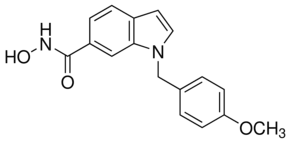An alternative approach may be to examine mutagenized MHCII molecules for their ability to undergo peptide exchangeability in the absence or presence of DM. Interestingly, we found that DM could promote a small, yet measurable peptide release in absence of an exchange peptide. Furthermore, this activity was independent of concentration. The phenomenon is likely related to the presence of multiple conformers of the peptide/MHCII complex. At least two isomers have been hypothesized, of which one would be responsible for the slow phase and one for the fast phase of the peptide release reaction. Catharanthine sulfate Moreover, it has been proposed that DM might distinguish between these isomers. One possibility is that in the presence of DM and absence of an exchanging peptide we observe peptide dissociation from the “fast release” conformers, on which the weak destabilizing action of DM would be enough to promote peptide release. The “slow release” isomers require an exchanging peptide for peptide  exchange. Experiments are currently underway to test this hypothesis. One limitation of the current study is that a single MHCII allele was used in the experiments. Therefore, further experiments must be conducted to confirm a common mechanism of DM-mediated peptide exchange across various MHCII alleles. If DM acts to promote peptide binding groove destabilization through disruption of peptide/MHCII interactions near the P1 pocket, the effect of MHCII P1 polymorphism may also Mepiroxol provide additional insights into the mechanism of DM-mediated exchange. Preliminary experiments with other human MHCII alleles confirm the presence of cooperativity in the absence of DM, supporting the hypothesis that the total distributed binding energy available to the peptide/MHCII complex contributes to complex formation, whether from hydrogen bonds or hydrophobic “anchors”. Therefore we do not anticipate the need of an alternative mechanism to explain the outcome of DM interaction with different MHCII alleles. How might the “compare-exchange” mechanism be applied to our current understanding of epitope selection in vivo? Based on our data, an attractive hypothesis would be that DM evolved to accelerate the process of generating the highest stability peptide/ MHCII complexes within a given pool of available peptide sequences within the MIIC. Currently, it is unclear how many cycles of peptide exchange a peptide/MHCII.
exchange. Experiments are currently underway to test this hypothesis. One limitation of the current study is that a single MHCII allele was used in the experiments. Therefore, further experiments must be conducted to confirm a common mechanism of DM-mediated peptide exchange across various MHCII alleles. If DM acts to promote peptide binding groove destabilization through disruption of peptide/MHCII interactions near the P1 pocket, the effect of MHCII P1 polymorphism may also Mepiroxol provide additional insights into the mechanism of DM-mediated exchange. Preliminary experiments with other human MHCII alleles confirm the presence of cooperativity in the absence of DM, supporting the hypothesis that the total distributed binding energy available to the peptide/MHCII complex contributes to complex formation, whether from hydrogen bonds or hydrophobic “anchors”. Therefore we do not anticipate the need of an alternative mechanism to explain the outcome of DM interaction with different MHCII alleles. How might the “compare-exchange” mechanism be applied to our current understanding of epitope selection in vivo? Based on our data, an attractive hypothesis would be that DM evolved to accelerate the process of generating the highest stability peptide/ MHCII complexes within a given pool of available peptide sequences within the MIIC. Currently, it is unclear how many cycles of peptide exchange a peptide/MHCII.